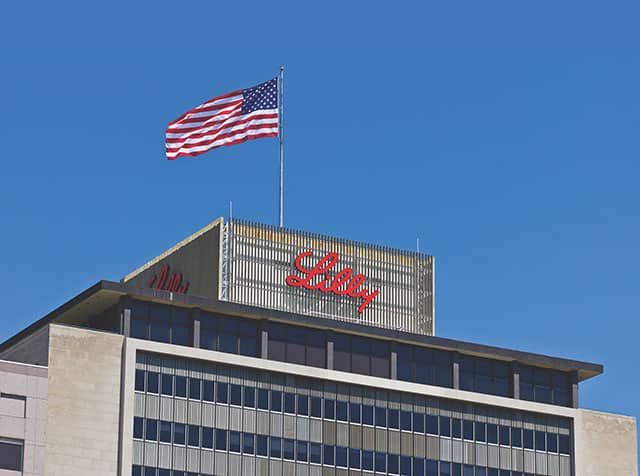
Eli Lilly (Lilly) has announced that its experimental Alzheimer’s drug, donanemab, has not been granted accelerated approval by the US Food and Drug Administration (FDA) due to the company not submitting enough trial data from patients with at least 12 months of drug exposure.
In a complete response letter, the FDA specifically requested that the company provide data from at least 100 patients who received a minimum of 12 months of continued treatment with donanemab, an investigational antibody designed to remove amyloid protein plaques from the brains of patients with early Alzheimer’s disease.
Lilly outlined in a statement that its phase 3 TRAILBLAZER-ALZ 2 trial remains ongoing, with the top line data – expected in the second quarter of this year – set to form the basis of donanemab’s application for traditional approval.
While the trial included more than 100 patients, its design allowed patients to complete their course of treatment when they reached a predefined level of amyloid plaque clearance.
This meant many patients were able to stop treatment after six months, resulting in fewer than 100 patients receiving 12 months of donanemab.
Anne White, executive vice president and president of Lilly Neuroscience, said: “We look forward to our upcoming confirmatory TRAILBLAZER-ALZ 2 phase 3 results and subsequent FDA submission, which we’ve always seen as the most impactful next steps for patients.
“We anticipate this study will confirm the benefit and safety profile we observed in the TRAILBLAZER-ALZ phase 2 study and believe that patients and physicians will be well served by having the full phase 3 data available alongside our phase 2 data when they need to make treatment decisions.”
Lilly announced in August 2022 that the FDA had accepted its application for donanemab in the treatment of Alzheimer’s disease for priority review.
The company’s application was based on results from a phase 2 trial in which donanemab demonstrated substantial amyloid plaque clearance. Data from the trial also suggested a cognitive and functional benefit to treatment.
The antibody has since continued to demonstrate positive results across clinical studies. In November 2022, Lilly announced that it met all primary and secondary endpoints for the six-month primary outcome analysis of the phase 3 TRAILBLAZER-ALZ 4 study comparing donanemab with Aduhelm (aducanumab-avwa).
Presented at the 2022 Clinical Trials on Alzheimer’s Disease conference in San Francisco, the results showed that brain amyloid plaque clearance was achieved in 37.9% of donanemab-treated participants, compared with 1.6% of Aduhelm-treated patients at six months.




